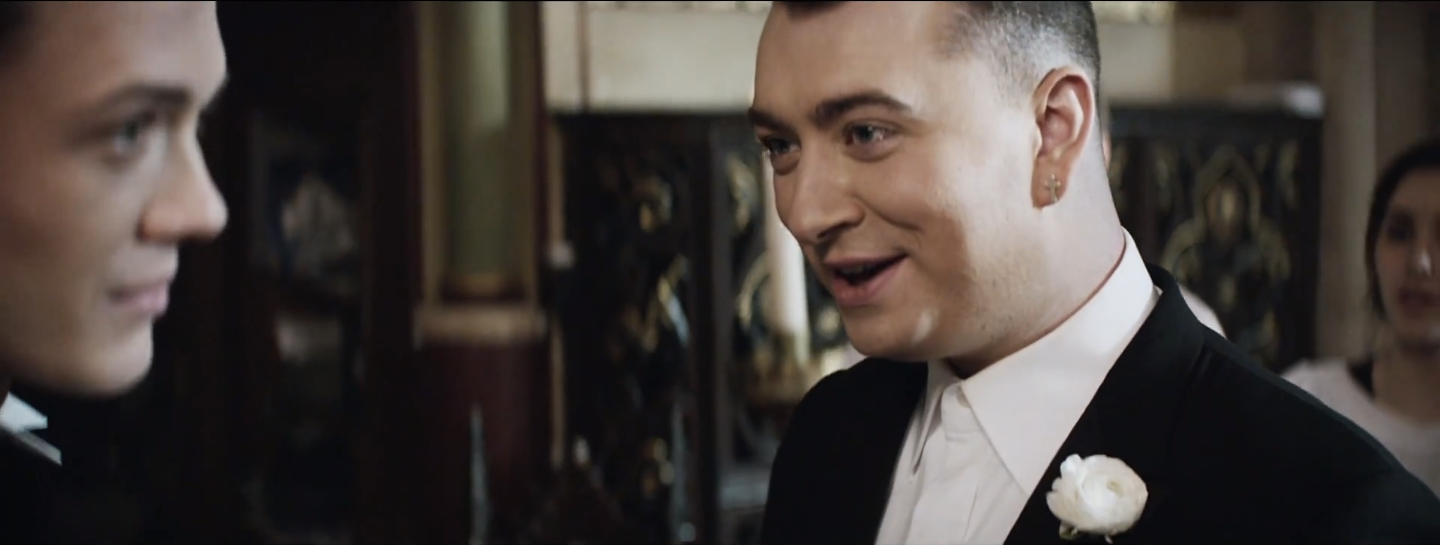Sam Smith made many headlines in 2014—mostly for his acclaimed debut album, his six Grammy nominations, and his three Top 10 singles, but also for coming out as gay. Since then, how Smith has represented his sexuality, both in his music and in comments to the media, has come under some scrutiny. Rick Juzwiak, writing for Gawker last summer, skewered what he called Smith’s “gay conservatism”: “He is gay, most of us who thought to ask know that he’s gay, but he’s not too gay because too gay is still too much for too many people,” he wrote. He specifically called out Smith’s use of gender-neutral pronouns in both his own music and in his cover of Whitney Houston’s “How Will I Know,” in which he altered the pronoun “he” to “you.”
Though Smith has never directly responded to these criticisms, he has since publicly documented his first relationship and recently spoke to Rolling Stone about his disagreement with the Catholic Church’s stance on homosexuality. And while he’s rejected the idea of being a “spokesperson” for gay rights, Smith’s new video for “Lay Me Down,” off last year’s In the Lonely Hour, might be his most powerful statement about his sexuality to date.
In the video, directed by Ryan Hope, Smith plays a grieving man who’s singing over a coffin at the front of a large funeral held in a church. It’s a wrenching scene made even more difficult to watch as the camera swirls around to reveal a happier time at that same church: Smith’s wedding day with the man he’s now laid to rest. Of the significance of the video’s church setting, Smith told Rolling Stone he believes it’s the first gay wedding—though still not a real one—to be filmed at a church in England. He later added on Facebook: “This video shows my dreams that one day gay men and women and transgendered men and women all over the world, like all our straight families and friends, will be able to get married under any roof, in any city, in any town, in any village, in any country.”
It’s not nearly as extreme a gesture as the mass gay wedding Macklemore staged at last year’s Grammys, but that makes it no less effective. And while it’s also more rooted in symbolism than activism—a critique Juzwiak and others might make—its representation of how it feels to lose a spouse, regardless of sexual preference, is all the more powerful for its universality.
